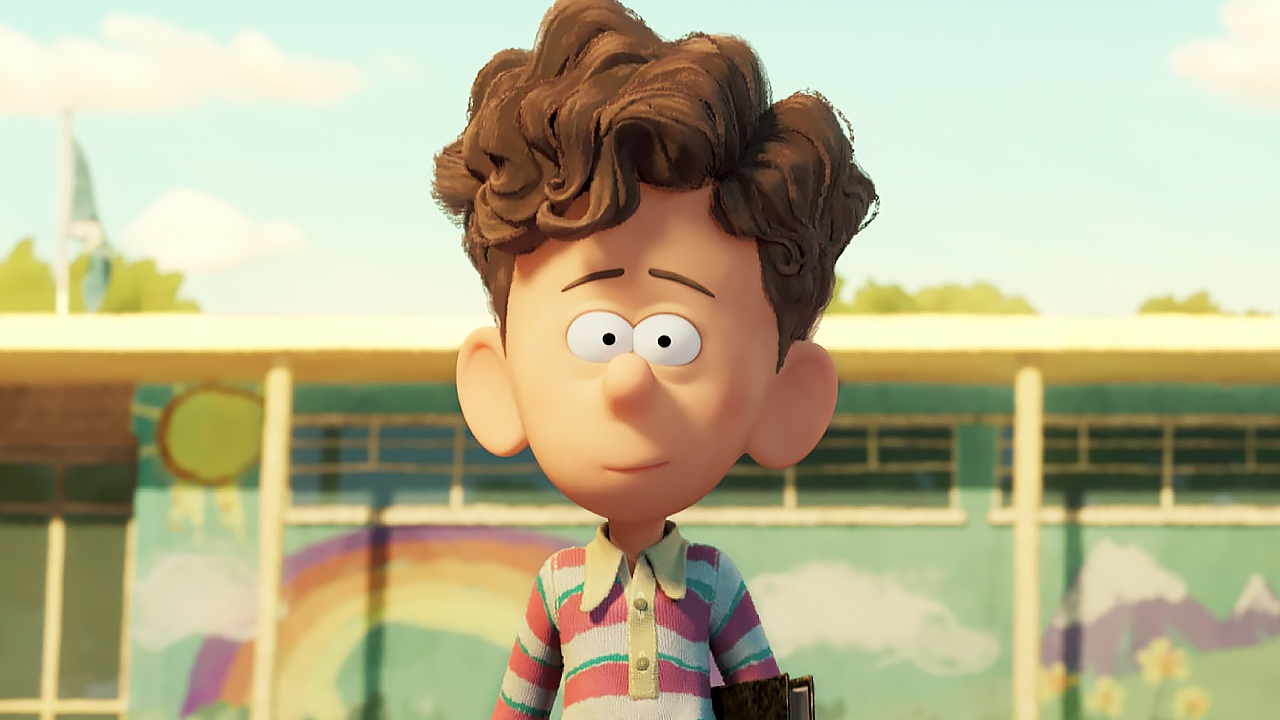Orion and the Dark is a delightful lark infused with the magic of Charlie Kaufman

An anxious young boy faces his fears in Orion and the Dark, now streaming on Netflix. Luke Buckmaster reckons its big ideas—as adapted by screenwriting weirdo Charlie Kaufman—will captivate adults as much as kids.
News that Charlie Kaufman had written what looked like a relatively standard Dreamworks animation reminded me of David Lynch’s road movie The Straight Story—a weird production because it’s normal and wholesome, shirking the auteur’s signature surrealism. But how foolish of me to assume, from the marketing materials, that Orion and the Dark would be a departure for Kaufman or the odd one out on his résumé. This delightfully playful family film fits his oeuvre like a glove, sitting comfortably alongside the squirrely scribe’s other idiosyncratic scripts, with their cascading realities and meta-textual angstiness—from Eternal Sunshine of the Spotless Mind to Synecdoche, New York and Being John Malkovich.
The target audience of Orion and the Dark, which was directed by Sean Charmatz and adapted from a 40-page children’s book by Emma Yarlett, is viewers whose shoe size exceeds their age—but adults will have a blast with it too. I certainly did. Kaufman’s script doesn’t condescend to kids, tapping into childish anxieties—notably, being afraid of the dark—in thoughtful and big-hearted ways, through the story of a neurotic little pipsqueak named Orion (voiced by Jacob Tremblay) who comes to terms with his fears.
Orion’s introductory voice-over—in which he babbles about how he’s scared of a great many things—reminded me of another film based on a Kaufman script, Adaptation, starring Nicolas Cage as a version of the writer, worrying and fretting, ramping up the neurosis. From the outset Orion and the Dark invites us into the protagonist’s reality, gets us looking at the world from his POV, get us empathising with him. Orion is imaginative but sharp and cynical, weighed down by the scary possibilities of life, the things he can’t fathom. Like the film itself, which is computer-rendered but has a lovely, slightly tactile texture, he’s very charming very quickly.
The plot properly launches when Dark (voice of Paul Walter Hauser) jumps into his bedroom at night. This Dickensian character literalises and personifies the absence of light: he is, in his own words, “just a regular guy, trying to do my job.” Kaufman and, presumably, the source material (which I haven’t read), uses the comedic premise of applying bureaucratic and organisational processes to places where they ought not belong, reducing the enigmatic and unfathomable to human concepts. This is sometimes deployed for flippant depictions of the afterlife—from Powell and Pressburger’s A Matter of Life and Death to TV’s The Good Place—or other mysterious realms such as matters of mind, a la Pixar’s Inside Out.
Tasked with taking Orion on a big adventure—unbelievable sights, indescribable feeling, a yada yada—the chatty and rather sensitive Dark flies his increasingly bold passenger around, introducing him to other entities of the night such as Sleep (Natasia Demetriou), Insomnia (Nat Faxon), Quiet (Aparna Nancherla) and Unexplained Noises (Golda Rosheuvel). Each have distinct personalities, born from an ancient, folkloric history of reimagining ordinary occurrences via fantastic creations—like the Tooth Fairy. Kaufman is careful with his messaging, making a point that fear, while it can and perhaps should be confronted, isn’t necessarily unhealthy, and certainly not something confined to childhood experiences.

Another central message is that without darkness there’d be no light—symbolically speaking, of course, although there’s also a character named Light, who is Dark’s nemesis. Poor old Dark is miffed about being typecast as a baddie merely for fulfilling his cosmic purpose; it’s a dirty job but someone’s gotta do it. This idea of finding innocence and naivety in dark places is an oldie but a goodie. Monsters Inc. turned the creation of nightmares into a occupation for adorable playthings, while the South Park movie imagined Lucifer as a rather lovely, unfairly maligned fellow, if a mite red in complexion, keen to philosophically justify his place in the yin and yang of the universe, belting out a song to argue that “without evil there would be no good, so it must be good to be evil somehow.”
When Orion and the Dark appears to start sliding into conventional kiddie terrain, Kaufman has a neat way of refreshing things, injecting it with flair and chutzpah. Almost 20 minutes into the runtime, for example, the film, apropos of nothing, introduces a bedtime narrative framing device. Which by itself is nothing new but here feels zany and fresh, particularly when it becomes clear the narrator—an adult Orion—is kind of winging it, allowing his narrative to be altered by the person he’s regaling. This subverts—from inside the narrative world—the ancient storyteller-listener paradigm. There’s quite a lot going on, but it all comes together as a beautifully breezy and bubbly lark, with a final act that’s vintage Kaufman.


















